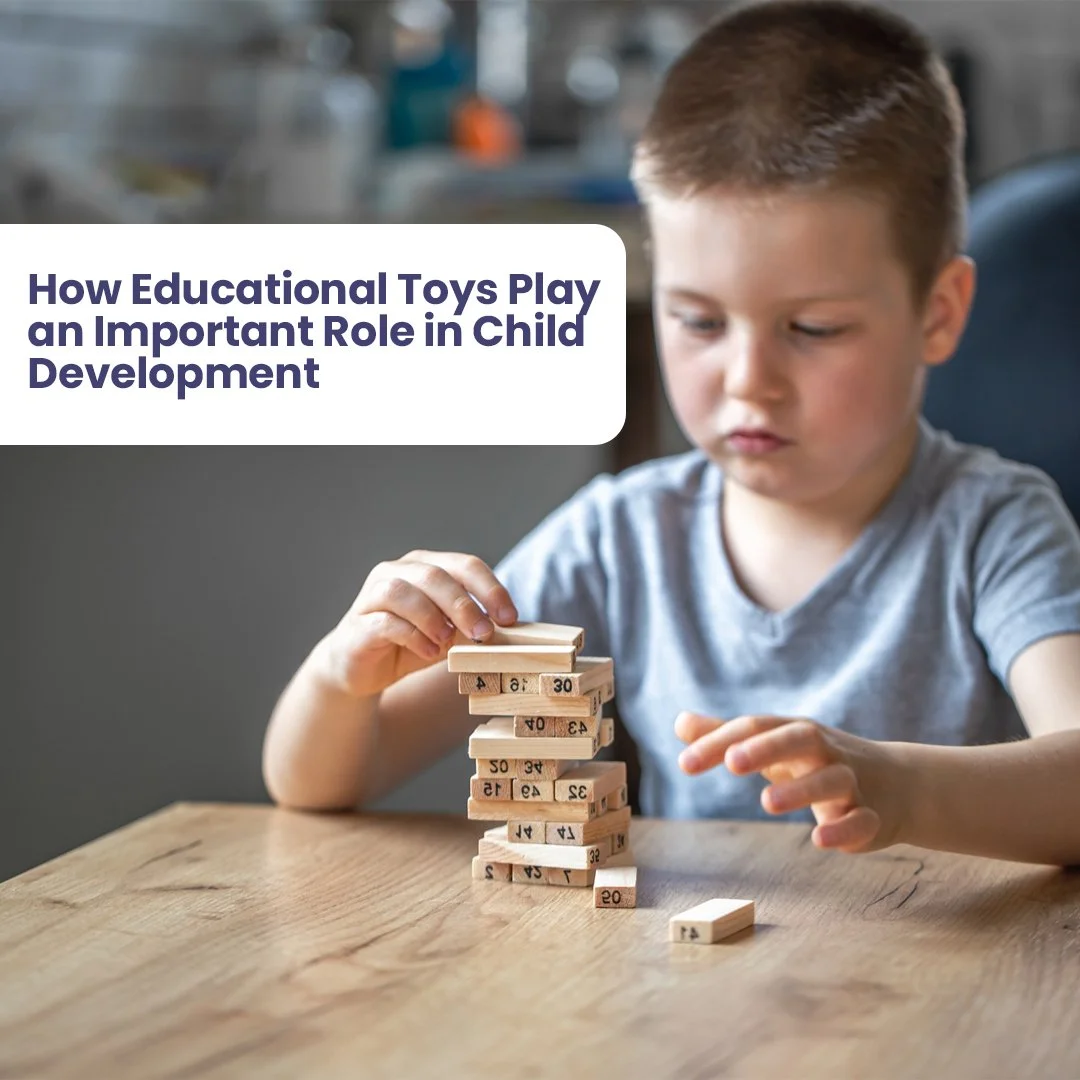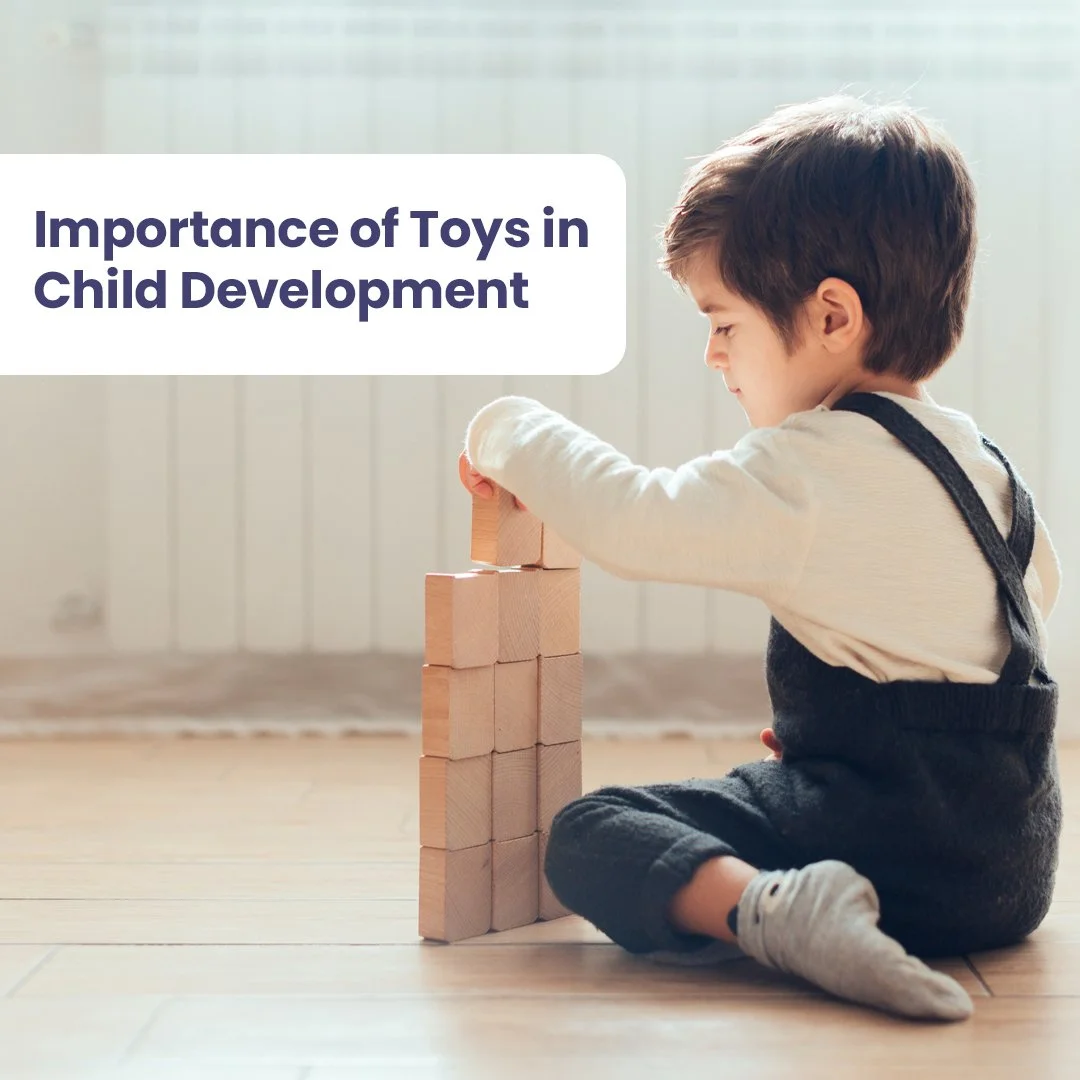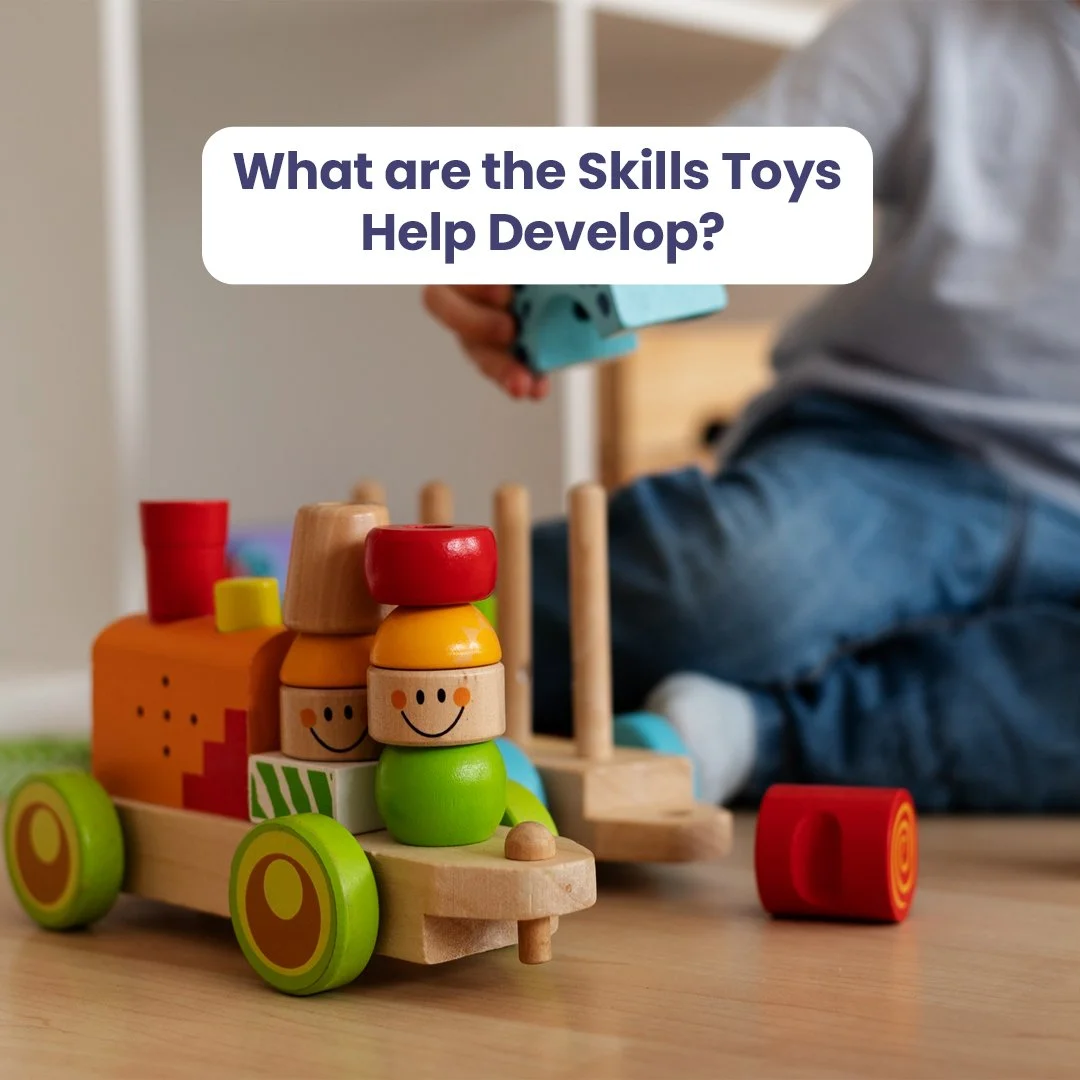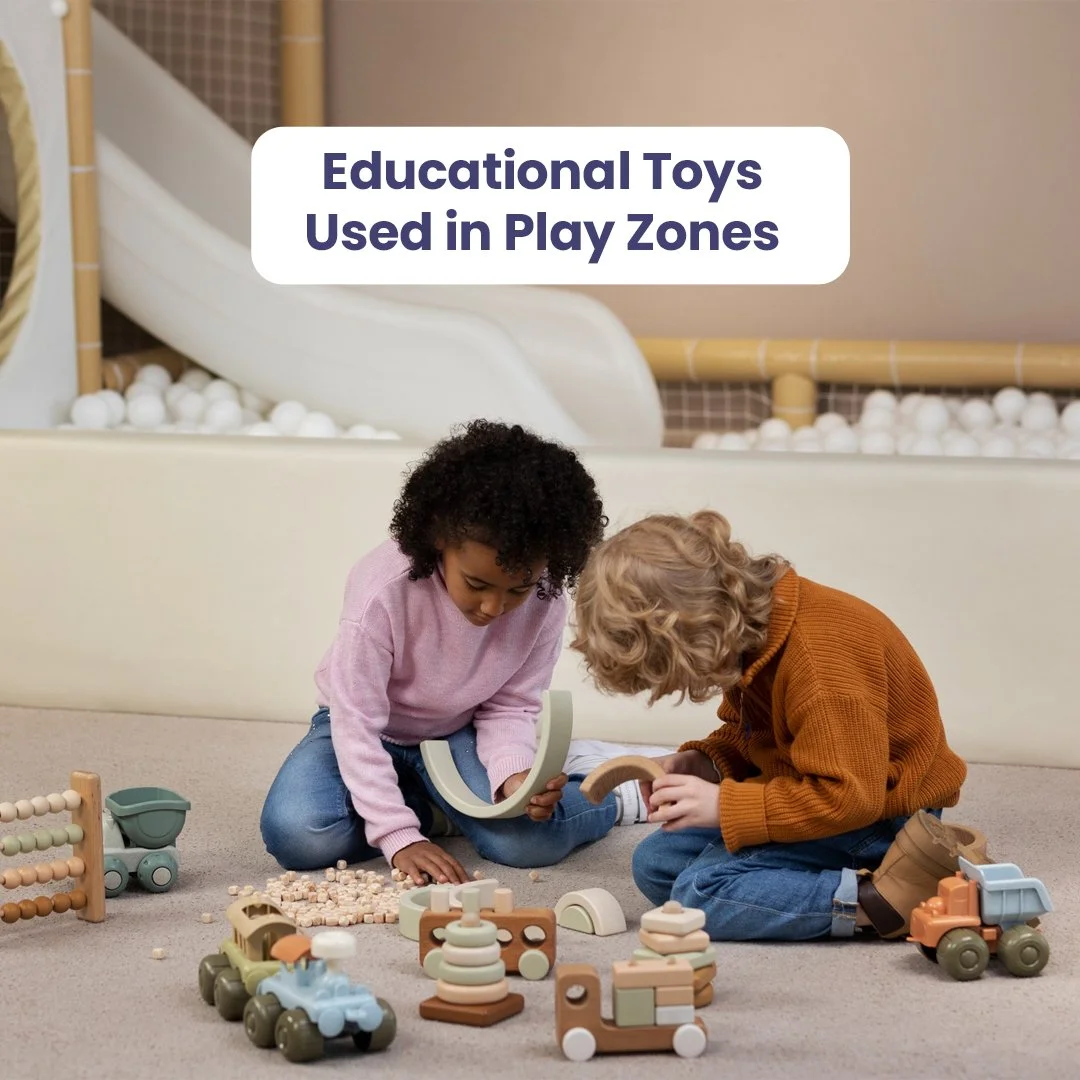How Educational Toys Play an Important Role in Child Development
Childhood is a beautiful journey filled with wonder, curiosity, and endless possibilities. Every toy a child touches becomes a tool that shapes their growing mind, helping them explore the world around them. From stacking blocks that teach balance to puzzles that spark problem-solving, toys play a crucial role in child development by nurturing essential skills while making learning fun. But in today’s fast-paced world, where parents juggle work and home responsibilities, ensuring that children develop the right skills at the right time often feels like a challenge.
This is where play centres in the UK step in, offering a perfect balance of fun and learning. These thoughtfully designed spaces are equipped with educational toys that stimulate cognitive, motor, and social development, giving children the opportunity to learn through play. When children engage in these structured play environments, they not only build foundational skills but also develop the confidence to tackle real-life challenges, all while having fun.
In this blog, we’ll explore how educational toys help children develop a wide range of skills, empowering them to grow into confident and capable individuals. Get ready to uncover how playtime can become the most valuable learning time for your child!
Importance of Toys in Child Development
Toys do much more than keep children entertained. They shape young minds, encourage exploration, and build essential life skills. Whether it’s stacking blocks, solving puzzles, or role-playing with dolls, toys play a key role in child development by enhancing cognitive, motor, and social abilities.
1. Help in Achieving Developmental Milestones
Toys act as stepping stones that guide children toward achieving key developmental milestones. Activities like stacking blocks improve hand-eye coordination, while puzzles enhance problem-solving abilities. As children engage with toys that match their age and capabilities, they develop critical thinking, fine motor skills, and emotional resilience.
2. Enhance a Fixed Set of Skills at a Particular Age
Each stage of childhood requires different types of stimulation. Infants learn through sensory toys, toddlers explore movement-based activities, and preschoolers thrive with educational toys that stimulate imagination and logical thinking. This targeted approach builds a strong foundation and prepares them for more complex tasks in the future.
3. Tend to Add on to New Skills
Repetition may seem monotonous, but for children, it’s the key to mastering foundational skills. When children repeatedly engage with interactive toys like building blocks or pretend-play kits, they reinforce their existing knowledge while developing new abilities. This seamless transition boosts their confidence and enhances their learning potential.
4. Stimulate Curiosity and Imagination
A child’s imagination knows no bounds, and toys act as catalysts that fuel their creativity. Whether it’s creating stories with dolls, building imaginary cities with blocks, or exploring new worlds through pretend play, toys inspire children to think outside the box. This creative freedom not only enhances their cognitive abilities but also encourages problem-solving and critical thinking.
Toys aren’t just playthings. They’re powerful tools that shape a child’s development in countless ways. As we explore the different skills toys help to develop, you’ll see how play zones combine fun and learning to empower children to thrive.
What are the Skills Toys Help Develop?
Whether it’s solving puzzles, pretending to cook in a play kitchen, or running around in a soft play zone, toys develop essential skills that shape a child’s growth. Play zones in the UK provide a variety of toys that target different skill sets, ensuring that children learn while having fun. Let’s explore how these toys nurture various abilities in children.
1. Cognitive Skills
Toys like puzzles, building blocks, and board games do wonders for developing problem-solving, critical thinking, and decision-making abilities. As children analyze patterns, fit pieces together, and create structures, they learn how to assess situations and think logically.
Play zones like - Wonderland Play introduce a variety of challenging and age-appropriate toys that stimulate young minds and encourage them to experiment, analyze, and come up with creative solutions. This consistent mental stimulation enhances memory, focus, and reasoning over time.
2. Motor Skills
Fine and gross motor skills play a significant role in a child’s physical growth. Activities like climbing, stacking blocks, and playing with balls strengthen hand-eye coordination, balance, and agility. Play zones focus heavily on movement-based games and activities that challenge children to use their bodies in different ways. Soft play zones introduce toys that refine motor skills by encouraging crawling, jumping, and balancing, all while making physical activity fun and engaging.
3. Social and Emotional Skills
Group activities and role-playing games teach children teamwork, empathy, and conflict resolution. Pretend play, where children act as doctors, chefs, or superheroes, helps them express their emotions and understand different perspectives. Play zones indoor activity create a nurturing environment where children learn to collaborate, share, and negotiate, helping them develop emotional intelligence. These social interactions prepare them for real-life scenarios where communication and empathy are essential.
4. Language and Communication Skills
Toys that involve storytelling, role-playing, and interactive games improve vocabulary, comprehension, and verbal communication. When children narrate stories or engage in dialogue with peers during pretend play, they practice forming sentences, expressing ideas, and understanding context. Play zones use imaginative play scenarios and engaging storytelling sessions to strengthen language skills, allowing children to develop confidence in expressing themselves while building strong communication foundations.
Toys aren’t just for fun. They equip children with valuable skills that prepare them for life. Up next, we’ll explore how educational toys in play zones turn playtime into an exciting learning journey!
Educational Toys Used in Play Zones
Soft play sessions aren’t just about running around. They are carefully designed experiences that blend fun with learning. Play zones in the UK incorporate a variety of educational toys and activities that help children develop physical, cognitive, and social skills while keeping them engaged. Let’s dive into the different types of toys that make soft play both enjoyable and enriching.
1. Climbing Games
Climbing structures like ladders, rope walls, and slides enhance balance, coordination, and physical strength wonder. As children climb, they navigate space and learn to assess distances, improving their spatial awareness. Play zones introduce various climbing challenges that encourage children to think critically while developing problem-solving abilities. This kind of physical activity not only builds confidence but also improves flexibility and endurance over time.
2. Puzzles
Puzzles challenge young minds to consider critically, practice patience, and strengthen logical reasoning. When children fit pieces together or solve shape sorters, they boost their cognitive abilities and enhance concentration. Play zones offer a range of puzzles suitable for different age groups, ensuring that children stay engaged while developing problem-solving skills. These activities promote perseverance and a sense of accomplishment, encouraging children to take on bigger challenges.
3. Board Games
Board games teach children turn-taking, strategy, and cooperative play. When children engage in games that require planning and decision-making, they learn the importance of patience and teamwork. Play zones often include group-oriented board games that promote healthy competition and enhance social interaction. These activities teach children to follow the rules, work together, and celebrate victories with grace and valuable life lessons disguised as fun.
4. Balls
Playing with balls enhances hand-eye coordination, reflexes, and overall agility. Whether it’s rolling, catching, or kicking, ball games help children develop balance and fine-tune their motor skills. Play zones incorporate a variety of ball activities that encourage teamwork, build stamina, and strengthen muscles. These activities keep children physically active while teaching them the importance of coordination and control.
5. Playground Trampoline
Trampolines provide children with a fun, high-energy way to improve balance, coordination, and muscle strength. Jumping on a trampoline encourages body control and spatial awareness while releasing pent-up energy. Play after school integrates playground trampolines to ensure that children stay physically active while enjoying a safe and exciting playtime. These activities promote cardiovascular health and enhance flexibility, making them a perfect addition to any play zone.
6. Art and Craft
Creative activities like drawing, painting, and origami stimulate imagination, improve fine motor skills and foster self-expression. Through guided art sessions, children explore different techniques while building hand-eye coordination and focus. Soft play sessions encourage creative exploration by offering age-appropriate arts and crafts sessions that inspire children to experiment, create, and learn from their imagination. These activities allow children to express their emotions while developing patience and precision.
By incorporating these engaging activities, play zones create a balanced environment where fun meets learning. As we move toward the conclusion, we’ll see how these toys and play sessions contribute to the overall growth and happiness of children.
Building Bright Futures Through Play
Toys play a powerful role in shaping a child’s cognitive, physical, and social growth. Throughout this blog, we explored how age-appropriate toys help children achieve developmental milestones, enhance essential skills, and stimulate curiosity and imagination. We also highlighted how play zones in the UK create safe, nurturing environments where children can learn through guided play sessions that balance fun with education.
By incorporating climbing games, puzzles, board games, arts and crafts, and trampolines, these play zones ensure holistic development while keeping children engaged and active. Parents can rest assured knowing that well-equipped play zones provide a structured yet exciting space where their children can build essential life skills while having fun.
If you’re looking for a way to ensure your child development, growth, and thrives, why not explore a play zone that blends entertainment with education?
Frequently Asked Question’s
-
Educational toys promote cognitive, motor, and social skill development, helping children learn while they play.
-
Yes, toys stimulate curiosity, imagination, and problem-solving abilities, encouraging overall growth in children.
-
Sensory toys enhance touch, sight, and hearing abilities, helping children improve focus, coordination, and emotional regulation.
-
Toys like puzzles, building blocks, art supplies, and interactive games boost creativity, critical thinking, and motor skills.
-
Educational toys teach specific skills and concepts while making learning fun and interactive for children.




